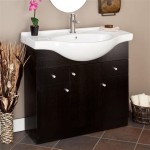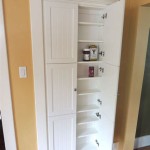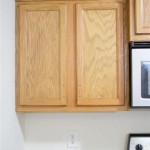How to Stain Wood Cabinets Without Sanding
Refinishing wood cabinets can transform the look of a kitchen or bathroom without breaking the bank. While traditional methods require sanding the cabinets down to bare wood, there is a less трудоемкий way to achieve a beautiful finish: staining without sanding.
Benefits of Staining Without Sanding
This technique offers several advantages:
- Saves time and effort: Sanding can be a time-consuming and physically demanding task.
- Preserves original finish: Avoiding sanding helps preserve the existing finish, including any decorative details.
- Easier to achieve an even finish: Sanding can leave uneven surfaces, while staining without sanding allows for a more consistent application.
Essential Materials
To stain wood cabinets without sanding, you will need the following:
- Wood cleaner
- Deglosser
- Tack cloth
- Stain (gel or liquid)
- Foam applicator or brush
- Polyurethane finish
Step-by-Step Instructions
Step 1: Clean the Cabinets
Use a wood cleaner to remove dirt, grime, and grease from the cabinets. Allow them to dry completely.
Step 2: Degloss the Cabinets
Apply a deglosser to the cabinets using a foam applicator or cloth. This will remove any existing finish and prepare the surface for staining.
Step 3: Tack Off the Cabinets
Wipe down the cabinets with a tack cloth to remove any dust or debris.
Step 4: Apply the Stain
Use a foam applicator or brush to apply the stain to the cabinets. Work in small sections, applying thin, even coats. Allow the stain to penetrate for the manufacturer's recommended time.
Step 5: Wipe Off Excess Stain
After the stain has penetrated, use a clean cloth to wipe off any excess. This will help prevent unevenness and darkening.
Step 6: Apply Polyurethane Finish
Once the stain has dried completely, apply a polyurethane finish to protect the cabinets. Use a foam applicator or brush, and apply multiple thin coats, allowing each to dry before applying the next.
Tips for Staining Without Sanding
- Use a gel stain for better adhesion and less mess.
- Test the stain on an inconspicuous area before applying it to the entire cabinet.
- Apply the stain in the direction of the wood grain.
- Allow ample time for the stain and polyurethane to dry completely.
By following these steps and tips, you can stain wood cabinets without sanding, achieving a beautiful and durable finish with минимальные effort.

Staining Your Wood Cabinets Darker Young House Love

Gel Stain Kitchen Cabinets Without Sanding Fast Easy Diy

How To Use Gel Stain Update Cabinets Without Sanding Anika S Diy Life

Diy Gel Stain Cabinets No Heavy Sanding Or Stripping Maison De Pax

Staining Your Wood Cabinets Darker Young House Love

How To Paint Kitchen Cabinets Without Sanding Or Priming

How To Paint Bathroom Cabinets Without Sanding 8 Vital Steps Grace In My Space

Refinish Kitchen Cabinets Without Stripping

How To Use Gel Stain Update Cabinets Without Sanding Anika S Diy Life

How To Refinish Wood Cabinets The Easy Way Love Remodeled
Related Posts








